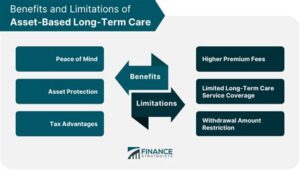long term psychiatric care facilities, Explore the essentials of long-term psychiatric care, including benefits, treatments, quality evaluation, and the pivotal role of family support.In an increasingly complex world, mental health challenges are becoming more prevalent, necessitating comprehensive care solutions that extend beyond traditional treatment methods. Long term psychiatric care facilities offer specialized environments designed to support individuals facing severe and persistent mental health issues. These facilities provide a structured, therapeutic setting where patients can receive ongoing treatment and support tailored to their unique needs. With a focus on holistic healing, these environments not only address psychological symptoms but also foster personal growth and recovery. In this article, we will explore the nuances of long term psychiatric care facilities, highlighting their benefits, common treatments, quality assessment, and the crucial role families play in the healing journey. Whether you are considering care options for yourself or a loved one, understanding this vital resource can pave the way for a brighter future.
Understanding Long Term Psychiatric Care Facilities
Long term psychiatric care facilities are specialized institutions designed to provide comprehensive mental health treatment for individuals experiencing severe and persistent mental illnesses. These facilities focus on creating a therapeutic environment that promotes recovery, stability, and well-being for patients who require extended care beyond what can be offered in typical outpatient settings.
Patients admitted to long term psychiatric care facilities often struggle with a range of mental health disorders, including but not limited to schizophrenia, major depressive disorder, and bipolar disorder. The goal of these facilities is to offer a structured and supportive atmosphere where patients can receive intensive psychiatric services.
One of the core features of long term psychiatric care is its holistic approach to treatment. Care plans are personalized and typically include a variety of services designed to meet the unique needs of each patient. These services may encompass:
| Service | Description |
|---|---|
| Individual Therapy | One-on-one sessions with licensed therapists to address personal challenges. |
| Group Therapy | Facilitated sessions where patients share experiences and support one another. |
| Medication Management | Regular evaluations and adjustments of medication under psychiatric supervision. |
| Life Skills Training | Instruction on daily living skills and coping strategies to support independence. |
The treatment in long term psychiatric care facilities is not just clinical; it emphasizes social and community reintegration. Patients engage in various recreational activities and are encouraged to build social relationships, which are vital components of recovery.
Overall, long term psychiatric care facilities play a crucial role in supporting patients with complex mental health needs, offering them the comprehensive care and resources necessary for a successful rehabilitation journey.
Benefits of Long Term Psychiatric Care for Patients
When it comes to mental health treatment, long term psychiatric care facilities provide numerous benefits that can significantly improve patients’ lives. These facilities are designed to support individuals who require extensive treatment and care, enabling them to achieve stability and wellness. Below are some key advantages of enrolling in long term psychiatric care:
| Benefit | Description |
|---|---|
| Comprehensive Treatment | Patients receive personalized treatment plans that address their specific needs, involving various therapeutic modalities. |
| Stabilization | Long-term facilities focus on stabilizing patients with severe mental health issues, helping to reduce symptoms over time. |
| Supportive Environment | A nurturing and structured environment allows patients to feel safe, minimizing anxiety and promoting healing. |
| Skill Development | Patients often participate in rehabilitation programs aimed at enhancing life skills and coping mechanisms for better daily functioning. |
| Access to Resources | Facilities provide access to a range of services, including medical care, counseling, and social services, ensuring holistic support. |
| Community Building | Patients have the opportunity to build relationships with peers who understand their struggles, which reduces feelings of isolation. |
| Continuity of Care | Long-term care facilitates ongoing support, making it easier to manage chronic mental health issues effectively. |
Overall, the advantages of long term psychiatric care can lead to improved mental health outcomes, allowing patients to reintegrate into their communities with a stronger foundation for recovery.
Common Treatments Offered in Long Term Psychiatric Facilities
Long term psychiatric care facilities provide a range of treatments tailored to meet the needs of individuals with severe and persistent mental health conditions. Here are some of the most common treatments offered:
| Treatment | Description |
|---|---|
| Medication Management | Utilizing psychotropic medications to help manage symptoms associated with various mental health disorders. |
| Psychotherapy | Individual and group therapy sessions to address emotional and psychological needs. |
| Occupational Therapy | Therapeutic activities designed to develop daily living skills and enhance social functioning. |
| Cognitive Behavioral Therapy (CBT) | A structured approach to change negative thought patterns and behaviors. |
| Family Therapy | Involving family members in treatment to improve dynamics and provide support. |
| Art and Music Therapy | Creative therapies that allow self-expression and emotional healing through art and music. |
Each of these treatments is part of a comprehensive care plan personalized for the patient. Long term psychiatric facilities focus on stability, recovery, and reintegration into society, emphasizing the importance of ongoing mental health support throughout the treatment journey.
Evaluating the Quality of Long Term Psychiatric Care
When it comes to choosing a long term psychiatric care facility, understanding the quality of care provided is crucial. Evaluating the long term care services can help ensure that patients receive the best possible support for their mental health needs. Here are some key factors to consider when assessing these facilities:
| Criteria | Importance | What to Look For |
|---|---|---|
| Accreditation | Indicates compliance with national standards | Check for certifications from recognized bodies (e.g., JCAHO, CARF) |
| Staff Qualifications | Ensures patients receive adequate care | Review professional credentials and staff-to-patient ratios |
| Treatment Options | Variety of approaches ensures comprehensive care | Inquire about therapies, medications, and rehabilitation programs |
| Patient-Centric Approach | Promotes individualized treatment plans | Assess how they tailor care to meet individual needs |
| Patient Reviews and Testimonials | Real experiences provide insights into care quality | Research online reviews and ask for references |
In addition to these criteria, it’s advisable to visit the facility if possible. Pay attention to the environment—cleanliness, safety, and overall atmosphere can greatly affect patient well-being. Also, consider asking current residents about their experiences and the level of support they receive. By conducting thorough research and evaluation, you ensure that your loved one receives high-quality long term psychiatric care tailored to their specific needs.
The Role of Family in Long Term Psychiatric Care
The involvement of family members in long term psychiatric care is crucial for the overall well-being of patients. Families not only provide emotional support, but they also play an integral part in the recovery process and in maintaining a therapeutic environment. Here are key aspects of their role:
- Emotional Support: Family members can offer a stable source of love and comfort, creating a safe space that can be essential for a patient’s mental health.
- Communication: Open lines of communication between the family and healthcare providers enable a more comprehensive understanding of the patient’s needs and progress.
- Active Participation: Families can become involved in care planning, ensuring that their loved one’s preferences and history are taken into account.
- Advocacy: Family members can serve as advocates for patients, helping them navigate through treatment options and ensuring they receive appropriate care.
- Education: Families can benefit from education about mental health conditions, enabling them to better understand the challenges their loved ones face.
- Reintegration Support: When transitioning from a treatment facility, the family can help facilitate a smooth re-entry into the community, reducing the risk of relapses.
long term psychiatric care facilities, Recognizing the importance of family support in long term psychiatric care is essential, as it significantly contributes to the effectiveness of treatment and the patient’s journey towards recovery. Encouraging family involvement creates a holistic approach to healing, ultimately benefiting both the patient and the family unit as a whole.
Frequently Asked Questions
What are long-term psychiatric care facilities?
Long-term psychiatric care facilities are specialized institutions designed to provide extended mental health treatment for individuals with severe mental disorders. These facilities offer comprehensive care, including therapy, medication management, and rehabilitation services.
Who typically benefits from long-term psychiatric care?
Individuals with chronic mental health conditions such as schizophrenia, bipolar disorder, and severe depression often benefit from long-term psychiatric care. It is suitable for those who require ongoing support that cannot be adequately provided in outpatient settings.
What types of services do long-term psychiatric care facilities offer?
These facilities offer a range of services including therapeutic interventions, medication management, occupational therapy, vocational training, and social skills development, all aimed at improving patients’ quality of life.
long term psychiatric care facilities,
How do long-term psychiatric care facilities differ from short-term facilities?
Long-term psychiatric care facilities focus on prolonged treatment and rehabilitation, while short-term facilities provide acute care for immediate crises or stabilization. Long-term care is designed for individuals needing extensive support over months or years.
What is the typical length of stay in a long-term psychiatric care facility?
The length of stay can vary significantly based on individual needs but typically ranges from several months to several years. Factors influencing the duration include the severity of the condition and the patient’s response to treatment.
What are some challenges associated with long-term psychiatric care?
Challenges can include stigma associated with mental illness, potential for inadequate resources, difficulty in transitioning patients to community-based care, and ensuring high-quality standards in facilities.
How can families support loved ones in long-term psychiatric care?
Families can support their loved ones by maintaining regular communication, participating in treatment planning, visiting often, and seeking to understand the challenges that come with mental illness, thereby fostering a supportive and encouraging environment.



